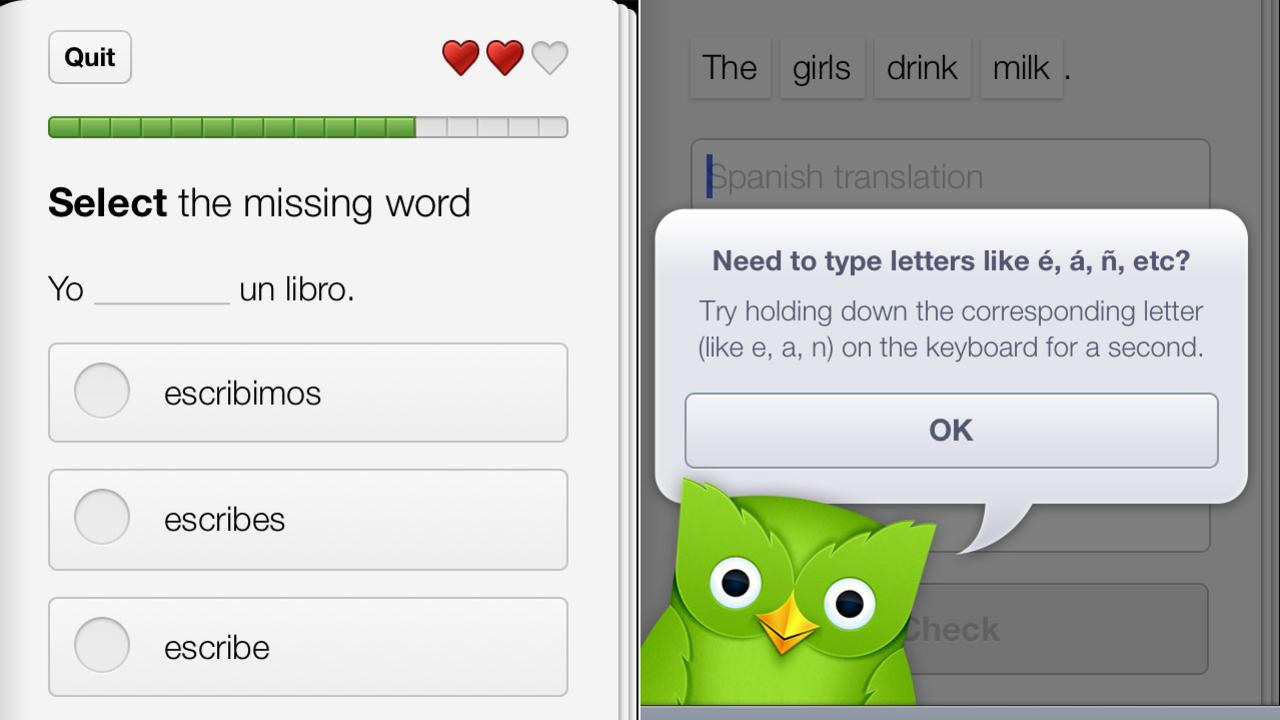Four online language courses to try in isolation and how to actually commit to your goal
Learning a foreign language is a bucket list item for many, but here’s how to stay motivated and inspired while doing it in isolation.
Among starting a vegie garden, complete a 15,000-piece jigsaw puzzle and re-watch Friends, Seinfeld and The Office, the resolution to “learn another language” is sitting pretty high on the isolation to-do list.
But unlike the others, the goal to become bilingual is a little more ambitions.
According to Google Trends, Aussies are looking at polishing their German, Russian and Korean, with Auslan (the sign language of the Australian Deaf community) also appearing high in searches. Other top languages also include Japanese, Chinese, French and Spanish.
But how do you ensure the words and phrases you pick up now, don’t just fade from your memory as soon as we’re allowed outside?
Speaking to news.com.au, language education experts, Dr Michiko Weinmann and Dr Ruth Arber from Deakin University shared their insights on how to ensure you actually learn that language. And not abandon ship as soon as that initial spark of inspiration fades.
They credited incorrect “expectations of time and progress” as the reason why people get demotivated midway. Referencing the Common European Framework of Reference (CEFR), they said it takes about 200 guided learning hours to advance in proficiency levels and the CEFR has six levels from beginner to highly proficient.
“You’d factor in additional hours for self study and practice in addition to that,” they added.
“Unless the goal is to pick up some basic phrases in a language, language study is a goal that will require a long-term time commitment to make progress and to gain fluency.
“Language learning is not a linear process. There will be moments when you plateau versus the moment when you feel you’re making huge improvements in your learning. Be patient and persist – this is part of the learning process.”
RELATED: Two words should be banned from iso
RELATED: Fun ways we're passing time in lockdown

Despite this, Dr Weinmann and Dr Arber said there’s no better time to learn a language than right now.
“Many resources that which are usually only available as paid resources have been made available for free or at a discounted price by commercial providers (at least for a certain time while COVID-19 lockdown is in place).
“People have also been going to great lengths to curate resource lists or hubs for language learning. So it’s a good time to access a lot of resources and materials, which are just at your fingertips.”
Speaking of … if you’re looking at how you can learn a language, have a look at these apps and online courses.
1. BABBLE
Backed by researchers at Yale University, Babbel uses short lessons to teach users how to listen, speak and write in their chosen language. The app uses speech-recognition technology to make sure you're correctly saying the words you're learning.
There's 14 languages on offer and the app has scored an Apple App Store review of 4.6 stars across 103,700 ratings.
2. VOCATIONAL LANGUAGE LEARNING CENTRE
If you’d rather not go down the self-taught route, VLLC has been teaching languages since 1989. Their online offering ensures students participate in exercises based on visualisation and association, as well as online lessons and one-on-one tutorials with native speakers.
There are 12 languages on offer, including Arabic, French, Spanish, Russian, Japanese, and Mandarin.
3. DUOLINGO
One of the most well-known language learning apps, Duolingo claims you can speak a new language just three months from now by just investing 10 minutes day. Ambitious? Maybe a touch, but the design and user-experience is engaging and fun.
The app has 35 languages on offer and all the course material is free. Members do have the option of upgrading to Duolingo Plus for $21.49 a month (six and 12 month packages are also available) which removes ads, unlocks extra quizzes and gives you the ability to download the lessons for offline use.

Looking for things to pass the time? The best shows to watch, the funniest videos, the best hacks and home workouts? Find it all at our Life (goes on) in Lockdown section
4. FLUENT IN THREE MONTHS
Globally renowned Polyglot, Benny Lewis shares how he became fluent in eight languages, conversational in four, with an additional basic understanding of another 12.
It’s loosely based on his best-selling book of the same name and takes users through his strategies on how to “hack” learning languages.
The online course also includes interviews with language learning experts as well as Immersion Resource Kits and Conversational Connector Packages based on your chosen language.
OTHER OPTIONS
While online programs which specifically cater towards one language are often more costly, they come with their benefits.
The formal setting of these lessons can provide structure and accountability to make sure you’re staying on track and they often include ways to practice with other students.
Some of these programs include:
- Alliance Française de Sydney (French)
- The Goethe-Institut (German)
- The Confucius Institute (Mandarin). Several of their courses are done in partnership with Australian universities like Sydney University, the University of Western Australia, the University of Melbourne, and more.
- Sign Online by the Deaf Society (Auslan)
- The Japan Foundation's 10-week Taster Course (Japanese)

TIPS ON THE BEST WAY TO LEARN A LANGUAGE
As for tips on how to stick to learning a new language, Australia's head of language and deputy director of the Goethe-Institut, Eva Baker, shared her advice:
• Practice it with other people in an authentic environment. The key to successful language learning is to actually use the language.
• Find a study partner who you can practice your target language with via phone or video call. There are also some internet-based language learning communities that you can join where you can find like-minded language learners. The Goethe-Institut offers a free learning community called Deutsch fur dich .
• You should practice all languages learning skills such as reading, writing, listening and speaking.
• Pay attention to grammar. Learning the grammar of a new language is the basis for using the language correctly.
• Immerse yourself. Even if you are not actually in the country where the language that you are learning is spoken there are lots of ways to do this. You might want to watch a film or TV series in your target language with subtitles or listen to radio programs or subscribe to a podcast.



